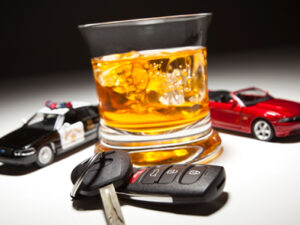St. Paddy’s day, summer picnics, and BBQ season are on the horizon. With all the fun comes an abundance of libations which, unfortunately, leads to an increase in Driving Under the Influence (DUI) incidents, arrests, and fatalities. A recently proposed law, Maryland House Bill 1342 and Senate Bill 945, known as “Noah’s Law,” seeks to toughen Maryland’s DUI penalties by requiring ignition interlocks on the vehicles of every person convicted of a DUI in Maryland. Noah’s Law has not passed through the Maryland legislature yet, however, it is supported by both Maryland Governor Larry Hogan and Maryland Senate President Mike Miller.
Noah’s Law is named after a Montgomery County police office, Noah Leotta, who was killed by a suspected drunk driver in December 2015. Leotta was conducting a traffic stop as part of the holiday DUI enforcement task force when he was hit by the alleged drunk driver. The man who struck Leotta is currently awaiting his day in court.
If you get pulled over for suspected DUI, the police officer will request you submit to a series of sobriety tests including a breathalyzer to determine your blood alcohol concentration (BAC). If you refuse to take the test, the police officer may confiscate your license on the spot; it can be suspended for 120 days for a first offense and one year for any repeat offenses.
Under current Maryland law, if you submit to the breathalyzer, your blood alcohol content (BAC) is an important factor in determining your privilege to drive. For a first time offender, a BAC between .08 and .14 results in a 45 day license suspension. If your BAC is .15 or greater on your first offense, you may receive a 90 day license suspension. For those with prior convictions, a BAC between .08 and .14 results in a 90 day license suspension; BAC that is .15 or higher results in a 180 day license suspension. Those with Commercial Drivers Licenses (CDL) may lose their license for as long as one year for a first offense (3 years if carrying hazardous materials), and face lifetime CDL disqualification for any subsequent DUIs.
In addition to license suspensions, those convicted of DUI with a BAC of .15 or higher, who are under age 21, or had children in the car at the time of the offense are required to install an ignition interlock device into their vehicle. Noah’s Law, as proposed, aims to require every single person convicted of a DUI with a BAC of .08 or greater to install the ignition interlock, even for a first offense.
Ignition interlock works by requiring a driver to blow into a breathalyzer that is installed in their vehicle and connected to the car’s engine. If the ignition interlock detects alcohol higher than a pre-set limit, the vehicle cannot be started. Drivers who believe the system is picking up on something other than alcohol may rinse their mouths, with mouthwash even, and make another attempt at starting the engine by blowing into the system. Recent technological developments, including in-vehicle cameras, make it more difficult to tamper with the results of ignition interlock tests in order to start a vehicle while inebriated.
Twenty-five states, including both of our border states Delaware and Virginia, already require ignition interlock for all first time and subsequent DUI offenders. The National Highway Traffic Safety considers ignition interlocks a cost effective way to reduce repeat alcohol related motor vehicle offenses, even with high-risk offenders that have multiple prior offenses. Interlock reduces second time drunk driving offenses by at least 67 percent. After making ignition interlock mandatory for all convicted drunk drivers, states like Arizona and New Mexico recorded greater than 40 percent declines in highway deaths due to drunk driving. In a single year, ignition interlocks stopped at least 3,800 attempts at drunk driving in Maryland. Imagine what could have happened if those 3,800 drunk drivers were swerving down our roads.
Driving under the influence is no joke in Maryland, and it looks like penalties are about to get more strict for many offenders. In addition to the criminal penalties, if you’ve been charged with a DUI, you have the right to an MVA hearing to preserve your right to operate a motor vehicle. If you do not request a hearing within 10 days of the traffic stop, on the 46th day after the “order of suspension” date specified on the Officer’s certification and Order of Suspension, your Maryland drivers’ license is suspended or disqualified. Go ahead and read that last sentence again. That legalese is just the tip of the iceberg of what you will experience when you seek an MVA hearing to plead your case regarding your DUI arrest. An attorney skilled and experienced with DUI cases will be able to guide you through the entire process–from filing your request for a hearing with the MVA, to preparing for your hearing, to representing you in criminal court.
You may have made the first mistake by getting behind the wheel of a vehicle while intoxicated; don’t make the second mistake of going into a hearing without an attorney by your side.
To find out more about Noah’s Law, visit the Maryland State General Assembly’s website.
Disclaimer!
This blog post that is published by Ferrante & Dill is only available for informational purposes and should not be considered legal advice. By viewing these blog posts, the reader understands there is no attorney-client relationship between the blog publisher and the reader. The blog post should not be used as a substitute for legal advice from a licensed professional attorney, and we recommend readers to consult their own legal counsel on any specific legal questions concerning a specific situation.






